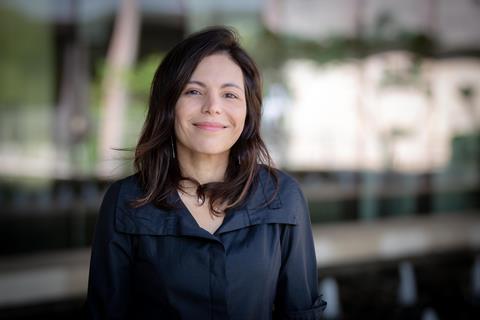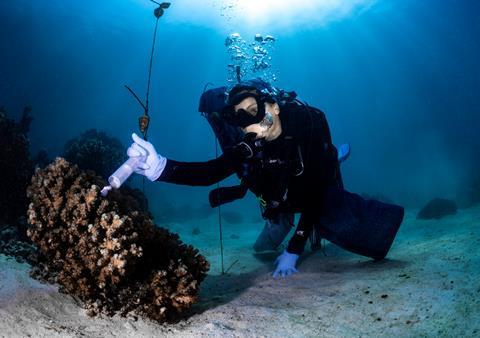Dr Raquel Peixoto of King Abdullah University of Science and Technology (KAUST) in Saudi Arabia has been named as this year’s winner of the inaugural Rachel Carson Prize for microbiology.

The prize is part of the Applied Microbiology International Horizon Awards, which celebrate the brightest minds in the field and promote the research, group, projects, products and individuals who continue to help shape the future of applied microbiology.
The prize is awarded to a scientist who has used microbiology to help further our understanding of ocean biodiversity or directly in solutions that conserve and sustainably use marine resources for sustainable development.
Prestigious event
Dr Peixoto was named as winner of the prize at the prestigious EMI lecture 2023, held at BMA House in London on November 16.
“Growing up in Brazil, home to the Amazon rainforest, I experienced first-hand the increasing threats to biodiversity caused by human activity. As a consequence, and as an ocean lover (and mother of three surfer and scuba diver kids), I have been focusing my research on how to protect corals threatened by climate change,” she said.
“At KAUST, Saudi Arabia, I could boost the fundamental and pioneering research I started in Brazil to prove the concept that microbiome restoration and rehabilitation through the use of probiotics is possible.
Restoring coral reefs
“With that, we generated the baseline data to allow the creation of the only sustainable medicine currently being considered to protect and restore coral reefs. This nature-based medicine can retain native corals in the reef, and their genetic diversity and hundreds to thousands of years of growth.

“Our team and collaborators are also leading discussions to expedite the development of this field while making sure we use the best standards for research, application, and risk assessment. In this regard, we are currently testing the automated application of probiotics in pilot trials in the Red Sea, at the Coral Probiotics Village, and investigating the response of the entire reef, within a “One Reef Health” framework,” Dr Peixoto said.
Silent spring
The Rachel Carson Prize is named after the American marine biologist and writer who catalyzed the global environmental movement with her 1962 book ‘Silent Spring’, outlining the dangers of chemical pesticides on the ecosystems and on humans, including causing cancer.
She also accused the chemical industry of spreading misinformation and public officials of accepting industry claims uncritically.
Following her publication, President John F. Kennedy’s Science Advisory Committee Report validated Carson’s research, leading to a nationwide ban on DDT and other pesticides and sparked the movement that ultimately led to the creation of the US Environmental Protection Agency.
Catalyzing action
In 1936 Ms. Carson became the second woman hired by the US Bureau of Fisheries where she was then Editor-in-Chief of all publications for the US Fish and Wildlife Service. She won a National Book Award, a national science writing-prize and a Guggenheim grant.
Ms. Carson also received medals from the National Audubon Society and the American Geographical Society, and induction into the American Academy of Arts and Letters. She passed away two years after the publication of ‘Silent Spring’ but in 1980 was posthumously awarded the Presidential Medal of Freedom.
To find out more about AMI’s Grants and Awards programme, visit https://appliedmicrobiology.org/membership-community/grants-awards.html.
Topics
- Applied Microbiology International
- Applied Microbiology International Horizon Awards
- Community
- Coral Probiotics Village
- Environmental Microbiology
- King Abdullah University of Science and Technology
- Middle East & Africa
- Ocean Sustainability
- People News
- Probiotics, Prebiotics & Synbiotics
- Rachel Carson Prize
- Raquel Peixoto
- The Americas







No comments yet